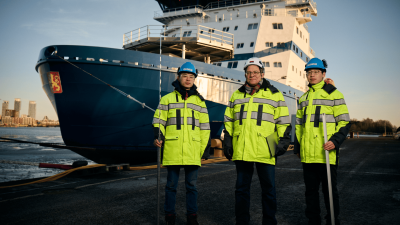The Centre of Excellence for Scenario-based Risk Management in Polar Waters
Aalto University, Finland.
This page is approximately a 2 minute read

Ice is a real danger to ships not designed for polar waters - our guidelines will help keep crews and passengers safe.
Professor Pentti Kujala Aalto University, Finland
Enhancing safety, sustainability and efficiency
"Ice poses significant and very specific challenges for ships transiting polar waters,” explains Pentti Kujala of Finland’s Aalto University. “But current regulations for the design of ice-going ships don’t predict actual safety levels and don’t take proper account of ice-induced loads due to the changing ice-environment.”
"Historically, polar ship design has been based on tradition, not science, and that means that the lives of crews and passengers can be at risk. Our work at the Centre of Excellence for Scenario based Risk Management in Polar Waters (CEPOLAR) has aimed to change that by developing recommended practice and associated software for the safe and sustainable design of ice class fleets. Our project is multidisciplinary, combining expertise in design methods, ice environment, ship-ice interaction, and structural damage and consequence analysis.”
Funded by Lloyd’s Register Foundation, CEPOLAR is led by Aalto University in collaboration with the University of Helsinki, Hamburg University of Technology, Memorial University in Newfoundland and the Norwegian University of Science and Technology. The Centre has access to a 40-metre ice and wave tank at Aalto University that reproduces sea-ice – the only such facility of its size in the world.
“CEPOLAR brought together some of the most experienced and knowledgeable minds in arctic shipping,” adds Pentti. “In June 2022, we presented our guidelines through seven presentations at the International Conference on Ocean, Offshore and Arctic Engineering (OMAE 2022) in Hamburg.”
“You might think that building safer ships means building more expensive ships. But that isn’t the case at all. In fact our guidelines can lead to a weight reduction of around 20%, reducing fuel consumption and emissions. So saving lives can also mean saving costs and saving the planet – and that’s good news for everybody.”
Continue reading
Welcome to 'Together'
In her first year as Chief Executive of Lloyd’s Register Foundation, Dr. Ruth Boumphrey reflects on the Foundation’s global impact in engineering a safer world.
Read previous articleDiscovering Safety
Every year, over half a million workers in the UK are injured, with over a hundred losing their lives. Discovering Safety, an initiative led by Helen Balmforth and supported by the Foundation, is using vast amounts of safety data to transform workplace health and safety.
Read next article
